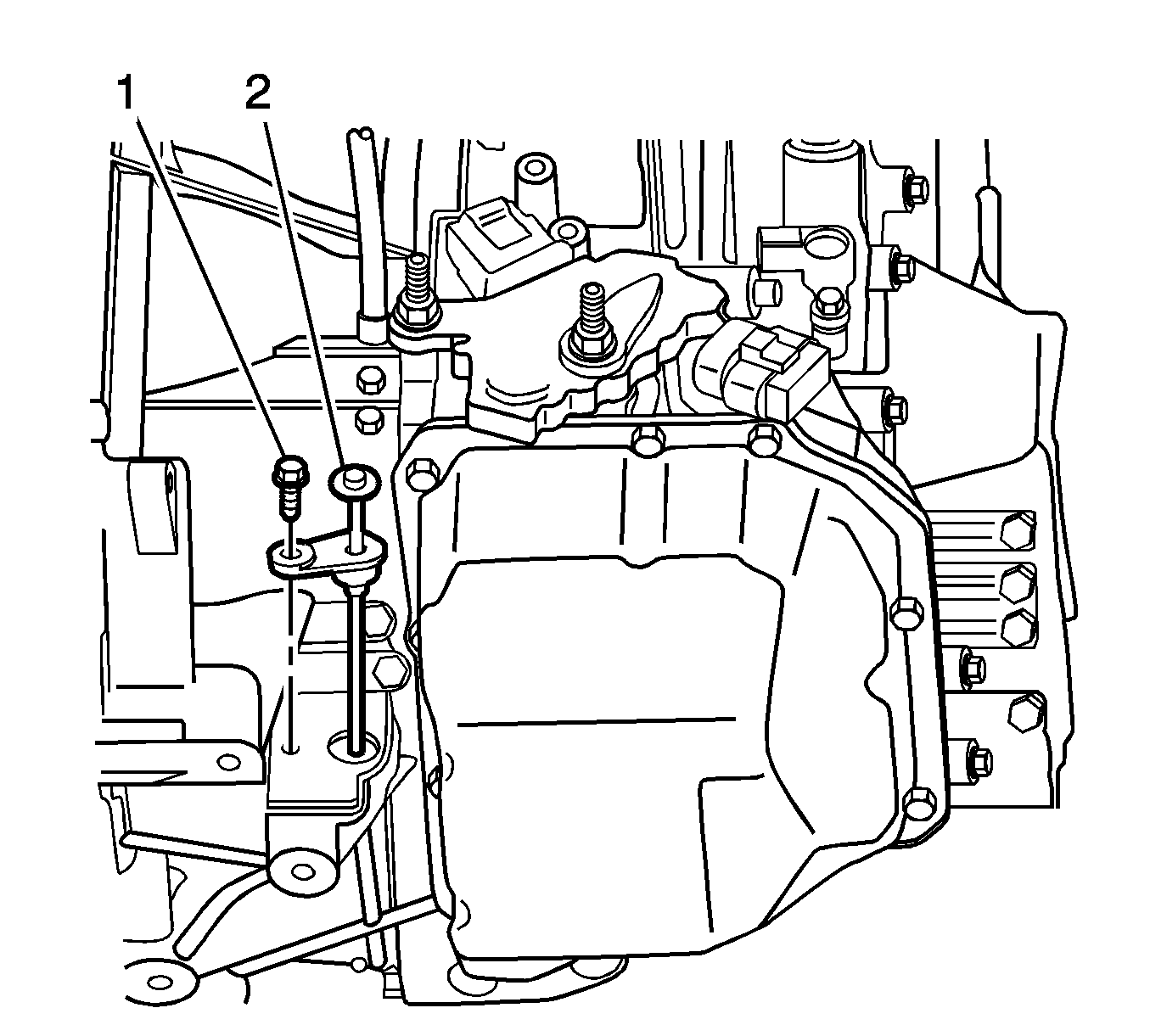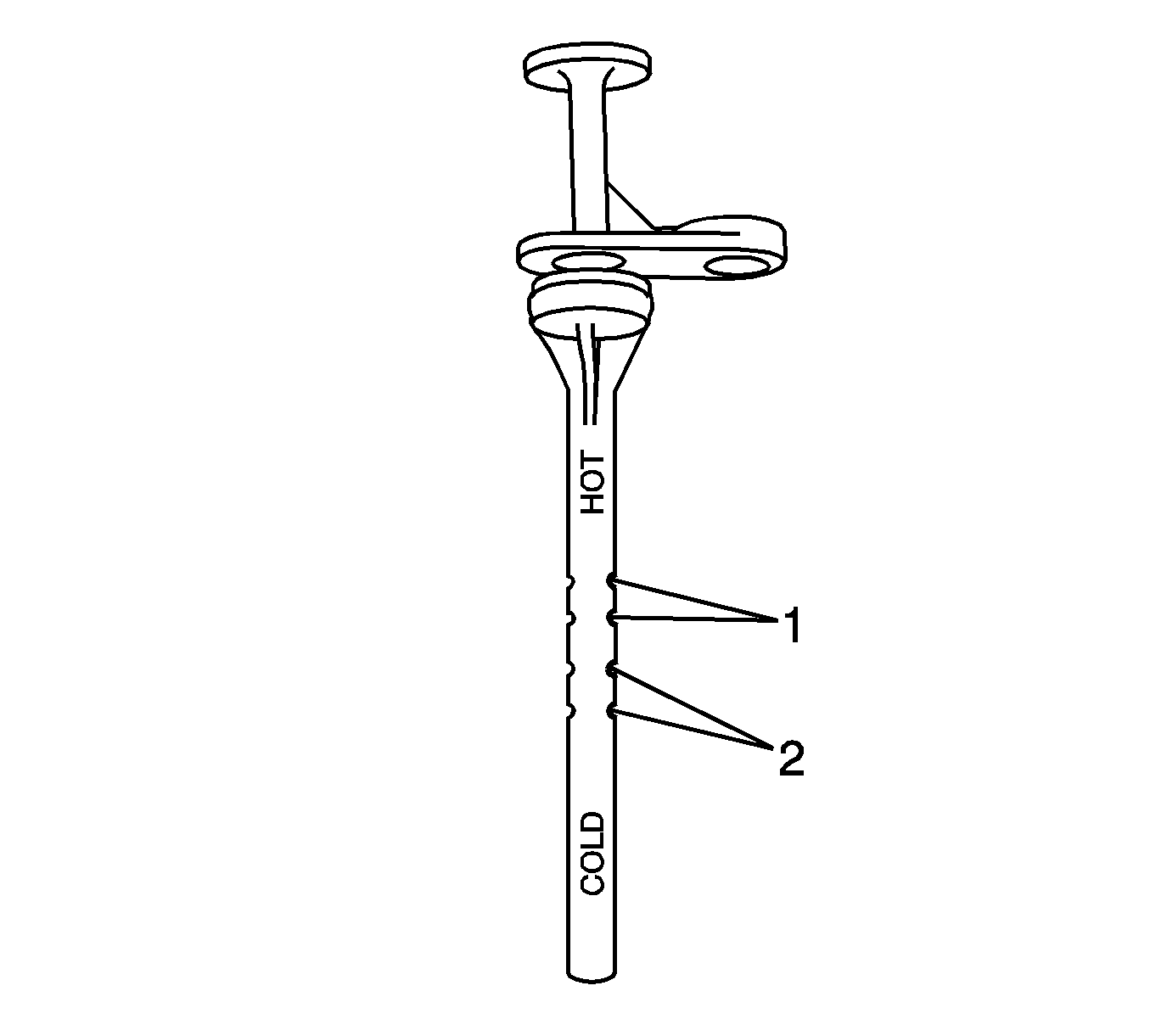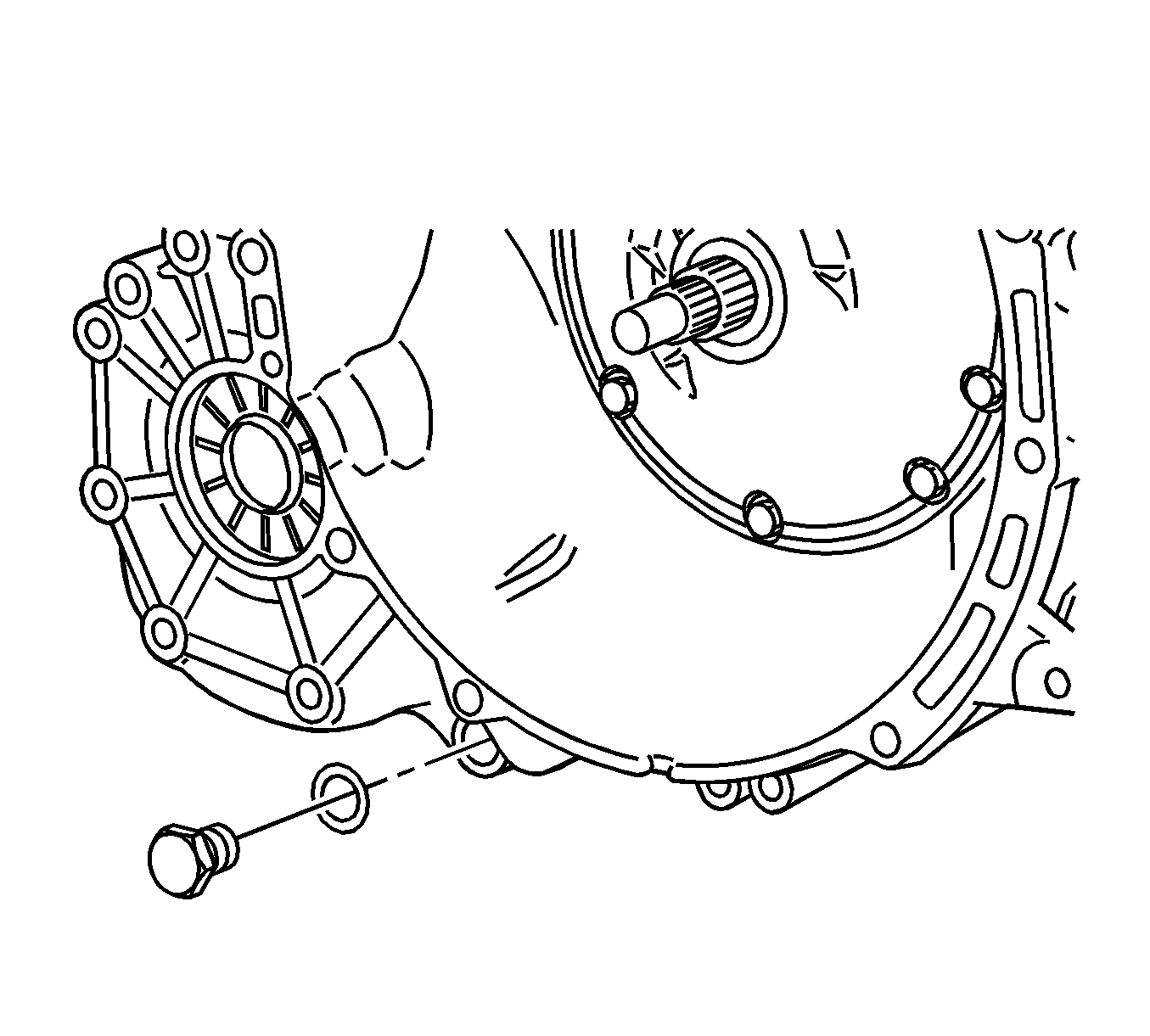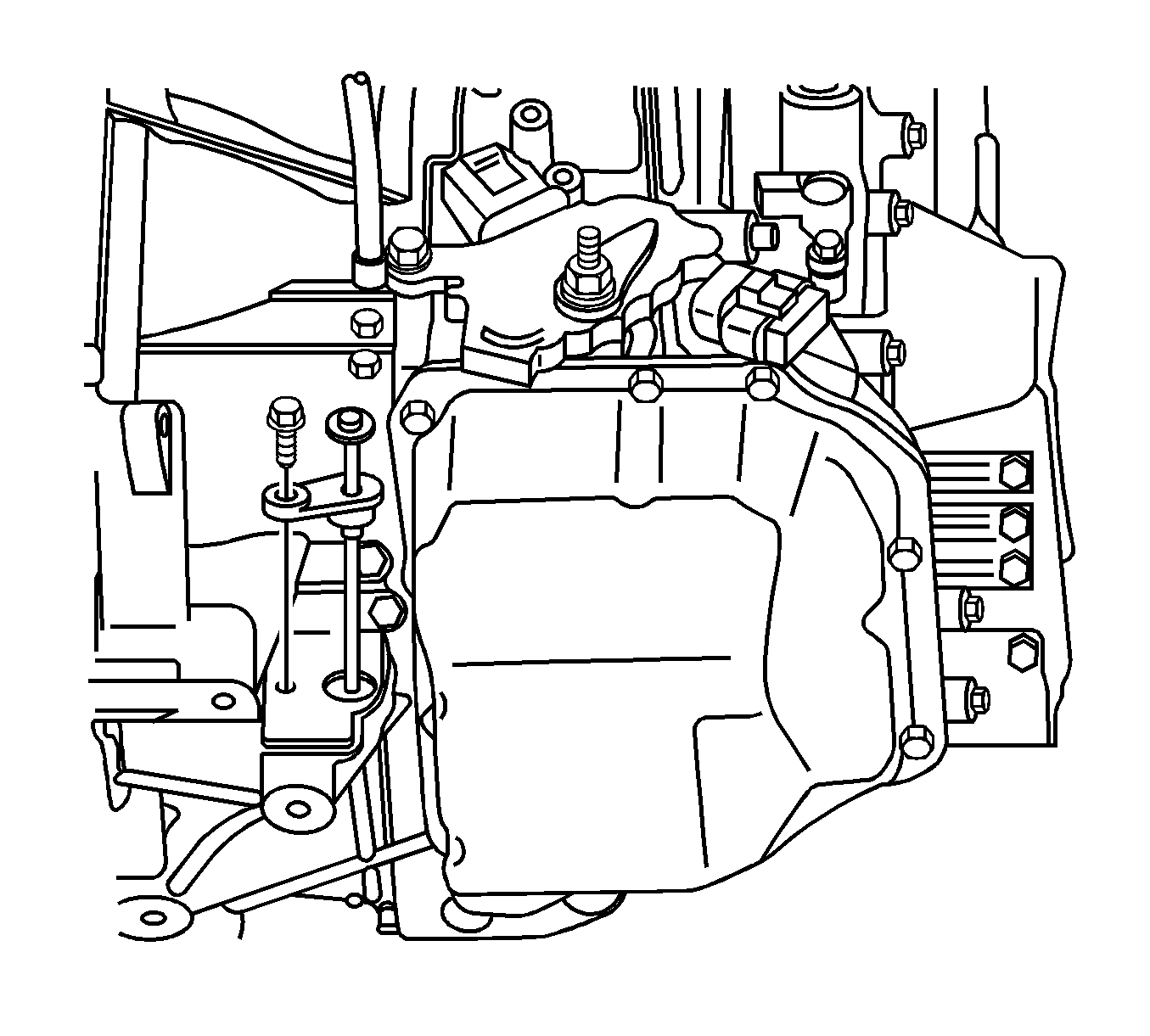
- Park the vehicle on a flat level surface.
- Operate the vehicle in order for the transaxle fluid temperature to reach the normal operating range.
Transaxle normal temperature 60-70°C (140-158°F).
- With the engine at idle, manual shift through all transaxle ranges and return to the park position. Leave the engine idling.

- Remove the transaxle fluid level indicator bolt.
- Remove the transaxle fluid level indicator.
- Wipe away any transaxle fluid from the indicator.
- Insert the indicator into the transaxle until fully seated.
Note: Inspecting the transaxle fluid level when not at normal temperature can give an incorrect measurement. The transaxle fluid expands when warm.
- Remove the indicator and inspect the level and the conditions of the fluid on the indicator:
| • | Transaxle fluid level at normal operating temperature (1) |
| • | Transaxle fluid level if cold (2) |

- If the fluid level is incorrect, inspect for the following conditions:
| • | Fluid below level, inspect for a leak and add the fluid through the fluid level indicator location. |
| | Important: When adding the fluid or making a complete fluid change, always use ESSO JWS 3309 US ATF.
|
| • | Fluid above level, transaxle is overfilled. |
| • | Drain some of the fluid through the drain plug and inspect the fluid level. |
Caution: Refer to Fastener Caution in the Preface section.

- Install the fluid level indicator bolt and tighten to
10 N·m (89 lb in).




